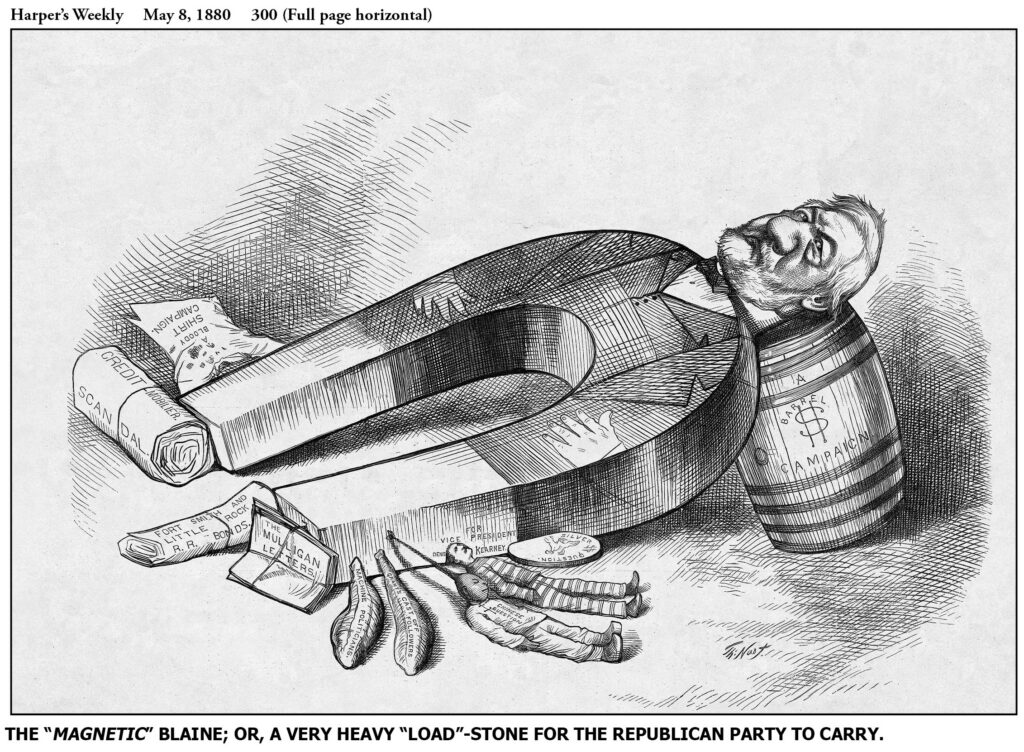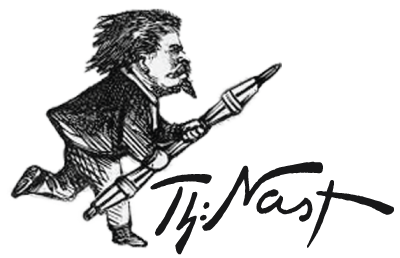
Harper’s Weekly – May 8, 1880
James Blaine tried to win the Republican nomination for the Presidency in three successive elections: 1876, 1880 and 1884. His stature and power emanated from Congress, where he served as Speaker of the House (1869-1875) and Senator from Maine (1878-1881). He failed to achieve his goal in his first two attempts, but succeeded in his third.
Nast distrusted Blaine for his shady railroad dealings in a scandal known as the Mulligan Letters. After Congress approved a land grant for the Little Rock and Fort Smith Railroad in 1869, Blaine wrote Warren Fisher — a contractor for the railroad and a partner of Blaine’s brother-in-law — a series of letters offering to provide his influence in exchange for the right to sell the company’s bonds. When Congress investigated, Blaine lied but was exposed when James Mulligan, a disgruntled former clerk in Fisher’s office, testified to the House Judiciary Committee about the letters and Blaine’s commission of $162,500 in free bonds.
Nast also disdained Blaine’s support for Chinese exclusion. During 1879 and into 1880, Nast drew several cartoons ridiculing Blaine for his anti-Chinese stance. Blaine, who had always supported black rights, was looking to secure the California, Nevada and Oregon electoral votes by backing Denis Kearney, a violent labor agitator who led the exclusionary movement.
In his 1880 battle for the nomination, Blaine’s principal opponent was Nast’s idol, Ulysses Grant. After a stalemate, Blaine’s delegates switched to James Garfield, thereby denying Grant a third term and further alienating Nast (who also distrusted Garfield for a different scandal).
Blaine’s charisma was acclaimed as his “magnetic” personality which attracted followers and votes. Nast turned that upside down by portraying him as a magnet with scandals, corruption and controversial issues sticking to him. His head was propped on one of Nast’s symbolic barrels of dollars used to buy votes or political favors. Kearney was attached as his potential vice president, beside a Chinese coolie. At his feet were the fraudulent railroad bonds, and “smoking gun” Mulligan letters (explaining his deceit), which had cost him the 1876 nomination when key Republicans refused to support him and backed Rutherford B. Hayes as their unexpected compromise candidate.
